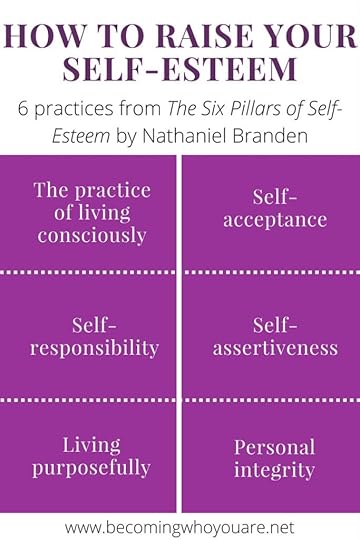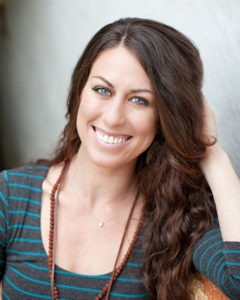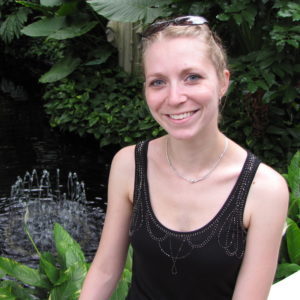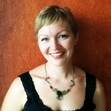Hannah Braime's Blog, page 16
October 3, 2016
Why We Jump to Conclusions (and How to Stop)
One of the biggest influences on how I feel is the stories I tell myself. These stories can make or break my experience of a situation, mean the difference between connection and conflict, and hold sway over key decisions I make in my life.
This is something I’ve become more conscious of over the past few years. Part of me loooooves jumping to conclusions and creating stories: taking a situation, filling in the gaps, and tying everything up in a neat little bow (even if that bow induces anxiety, fear and feelings of “not good enough”). Learning to recognise when this is happening and question the story instead of reacting as though it were true is a work in progress (and might always be).
Last year, I read something that helped me understand more about why jumping to conclusions and creating stories is such a sticky process, and how we can help ourselves step back and unravel them, and I want to share this today.
In her book, Rising Strong, Brené Brown talks about the importance of “rumbling with our stories.” In other words, being conscious of the meanings we attach to particular events and situations, and unpacking what we know to be true from where we’re filling in the gaps with guesswork.
She shares the work of Robert Burton, a neurologist who explains why we jump to conclusions (and why it can be so hard to stop). According to him, our brains reward us with dopamine whenever we recognise and complete patterns, whenever we fill in the gaps and reach an understanding about something.
The problem is we don’t have to be right to get this dopamine hit: we just need to think we’re right. Certainty matters more than accuracy.
And this is where we run into issues with our stories. It’s why, when a good friend doesn’t respond to a call or email for a week, we think “She must be mad at me about something” and feel a sense of satisfaction from thinking this, even though the idea also provokes anxiety and upset.
Even with our darkest self-stories, that lightbulb moment has a physiological reward and as a result we are more likely to shun the process of working with uncertainty and vulnerability to get to the truth. Living in uncertainty is a vulnerable place that is much healthier emotionally but doesn’t come with the same physiological reward.
How do we stop before we jump to conclusions?
This is all still a work in progress for me, as I suspect it will be for a long time, if not a lifetime! Here’s what I’ve found helpful for this process so far:
First, by noticing when we’re doing it. Our stories often feel justified and so very real, which is why the first step to changing them is about noticing they are just stories.
We can separate out fact from fiction by asking what we know to be objectively true, what assumptions we’re making, the other possibilities and whether we need further information. We can prioritise asking questions over finding answers.
We can also look at the feelings underneath our response. Feelings like anger go hand-in-hand with other experiences, like vulnerability, shame, guilt, and so on. When we can name those underlying feelings, we can better address them. And, when we can recognise and accept that sometimes we don’t—and won’t—know, that becomes our new certainty.
In what situations are you most likely to jump to conclusions? And how do you question these stories? Leave a comment and share your thoughts.
Further reading: How to cultivate self-trust & let’s do more of these 4 things for a brighter, happier year
The post Why We Jump to Conclusions (and How to Stop) appeared first on Becoming Who You Are.









September 19, 2016
What Is Authenticity? Self-Awareness + Courage.
I recently enjoyed reading the book Emotional Equations by Chip Conley. Although the book is geared more towards business owners, the main concept is fascinating: that emotions can be defined by equations involving experiences, qualities and values. Throughout the book, Chip shares many different equations covering a range of emotional experiences. The one that caught my eye in particular was his equation for authenticity:
What is authenticity? Self awareness + courage
As he says, “Self-awareness without courage means you know who you are but the rest of the world doesn’t. Courage without self-awareness can lead to macho posturing.”
He also shares four questions we can ask ourselves to gauge our authenticity. I’ve been using these as prompts during my daily journaling and found them insightful and enlightening:
1. Who knows you best? Would they describe you differently from the rest of the world? How do you show up on their presence? How do you feel around them?
2. What is the biggest masquerade in your life today? When do you feel the biggest disconnect between who you are and what you’re doing? What were/are the circumstances that led you into this situation? How do you cope with or compensate for this feeling of disconnection? How do you think it affects the people and relationships in your life?
3. How are you most frequently misperceived and why? What is the real you and why is it others don’t see that as much as you’d like them to?
4. If an objective observer watched you for 24 hours a day for a month, what do you think they would say are your three greatest strengths and your three greatest weaknesses? How do you feel about each of those six qualities?
Your challenge: What is authenticity to you? Set aside 30 minutes over the next week to answer these questions. What do you notice about your responses? What surprises you? Leave a comment to share your thoughts.
The post What Is Authenticity? Self-Awareness + Courage. appeared first on Becoming Who You Are.









September 5, 2016
The 6 Practices That Will Raise Your Self-Esteem
In general, I am leery of the “raise your self-esteem” movement. Like psychologist and author Kristin Neff, I prefer to think in terms of self-compassion than self-esteem. The idea that we should all think positive, believe we are special, and strive to be above average bothers me. Aside from the fact it’s statistically impossible for us all to be above average (!), it makes us more likely to attach our sense of self-worth to performance and inspires unhealthy comparison to others.
Despite the self-esteem movement’s best intentions, this actually leaves us more susceptible to self-criticism when reality clashes with what we’ve been told should be our starry-eyed view of ourselves. It also primes us for delusional, even dangerous, thinking (like the 90% of people who think they are above-average drivers…).
This is why I love Nathaniel Branden’s work on self-esteem. Rather than encouraging us to believe we are all amazing just because, he suggests self-esteem is tied directly to how we live and is therefore very much within our control.
He defines self-esteem as:
“1. Confidence in our ability to think and confidence in our ability to cope with the basic challenges of life; and
2. Confidence in our right to be successful and happy, the feeling of being worthy, deserving, entitled to assert our needs and wants, achieve our values, and enjoy the fruits of our efforts.”
Ultimately, it is “…the experience that we are appropriate to life and the requirements of life.”
In his book, The Six Pillars of Self-Esteem, Branden outlines six practices that will raise your self-esteem. Rather than basing self-esteem on external achievements and gold stars, these practices are all internally generated and open to all of us, regardless of our situation or life circumstances:
The practice of living consciously
Self-acceptance
Self-responsibility
Self-assertiveness
Living purposefully
Personal integrity

As Branden writes, “self-concept is destiny” and, whatever our starting point, we can have a profound impact on our self-esteem by practising these pillars in our daily lives.
If you’d like to find out more about these six pillars, you can get 10 key lessons from the book in the Becoming Who You Are Library. Enter your email below to get started!
Image: Mathieu Turle
The post The 6 Practices That Will Raise Your Self-Esteem appeared first on Becoming Who You Are.









September 1, 2016
#102: The Art of Pivoting in Life and Work with Jenny Blake
 Change is an inevitable part of life, so how can we give ourselves the best chance of navigating big transitions as smoothly and constructively as possible? In today’s episode, I’m joined by Jenny Blake to talk about her latest book Pivot, and how we can cultivate a mindset that will support us as we attempt to answer the big question “What’s next?”
Change is an inevitable part of life, so how can we give ourselves the best chance of navigating big transitions as smoothly and constructively as possible? In today’s episode, I’m joined by Jenny Blake to talk about her latest book Pivot, and how we can cultivate a mindset that will support us as we attempt to answer the big question “What’s next?”
Jenny is an author, career and business strategist and international speaker who helps people organize their brain, move beyond burnout, and build sustainable, dynamic careers they love. Jenny is the author of Pivot: The Only Move That Matters is Your Next One (Portfolio/Penguin Random House, September 2016), and Life After College (Running Press, 2011), which is based on her blog of the same name. Today you can find her at JennyBlake.me where she explores systems at the intersection of mind, body and business.
Episode: The Art of Pivoting in Life and Work with Jenny Blake
Topics we cover include:
Why a pivot mindset is necessary to thrive in today’s world
Why you don’t need to know your purpose (and what to focus on instead)
The four stages of any pivot (and how to apply them to different areas of your life)
Why it’s crucial to look at what’s working now before we look at where we want to go next
The power of staying connected to your body during transitions
How to tell the difference between our gut instinct and external conditioning
Why it’s important to shift from black and white thinking to asking combinatorial questions: “How can I do this and do/have this?”
…and much more!
Useful Links
Pivot pre-order bonuses
Pivot on Amazon
Pivot Coaching
Pivot Podcast with Jenny Blake
Say Hello
Jenny
Website: jennyblake.me
Twitter: @Jenny_Blake
Hannah
Pinterest: pinterest.com/hannahbraime
Facebook: facebook.com/becomingwhoyouare
Website: becomingwhoyouare.net
Subscribe to the Podcast
Intro and outro: Stephanie Murphy
Image: Mike Enerio
The post #102: The Art of Pivoting in Life and Work with Jenny Blake appeared first on Becoming Who You Are.










August 22, 2016
What Happens When You Change Your Questions?
This is a guest post by Johanna Schram.
The questions we ask shape our perspective on the world and our beliefs about ourselves. While some questions have clear-cut answers, most of our internal questions are more of a lifelong prompt for exploration. We can get stuck when our desire for certainty gets in the way of our curiosity.
Some of the questions I commonly ask myself are rooted in fear. They focus my energy on evaluating how well I’m measuring up. Part of me believes that if I find enough right answers I can protect myself from failure, rejection, and anxiety.
I’m learning to reframe these questions to shift from a place of fear to a place of possibility. Of course, I still ask limiting questions on occasion—I think we all do—and I’m grateful to have people I trust to help me notice the questions I don’t realize I’m asking. When I ask better questions, the smallness of needing answers opens up into possibilities for exploration and opportunities for connection and growth.
Who am I supposed to be? becomes Who am I?
Before I spend time with other people, I search through my closet trying to choose which outfit will come the closest to matching their style. When someone asks me what I do, I tailor my response to fit their idea of success. I listen for my friends’ opinions on books, music, and movies before sharing my own.
In my fear of not meeting others’ expectations, I’ve searched for my identity outside of myself. I’ve continually changed to fit the differing opinions of who I should be. Shifting to ask who I am doesn’t mean I’ll find a definitive answer—who I am is complex and evolving and at times contradictory—but it does bring me back to a path of discovering what is truly me instead of striving to fit someone else’s mold.
When do you look to others for cues about what you should do or think? What changes if you ask which decision, action, or opinion feels most true for you?
Am I good enough? becomes How can I make the most of who I am today?
I commonly feel like I’m an impostor. I wonder why anyone would read my writing when there are so many people more experienced, knowledgeable, and eloquent. Focusing on the ways I fall short keeps me from seeing what I have to offer. There will always be people further ahead than me, but that doesn’t mean I have nothing of value to contribute.
Honestly, I’m tired of spending my energy on trying to prove I’m worthy of being here. The fact is—I am here. I can spend my life trying to prove I’m good enough to do something meaningful…or I can go ahead and give my best each day.
What is one thing you know to be true about yourself today? How can you use that to make your corner of the world a better place?
Does this person like me? becomes How can I be present and engaged with this person?
Meeting new people and making friends doesn’t come easily for me. I want to be certain people will like me before I risk reaching out. If someone doesn’t like me, I assume it’s because there’s something wrong with me.
The truth is not everyone will like me and that’s ok. When I focus on gaining someone’s approval, I’m really just making our interaction all about me. As much as I want to avoid the pain of rejection, I care more about the quality of my friendships than the number of friends I have. I’d rather spend my energy truly listening and looking for ways to connect more deeply.
Who would you love to get to know? What would it look like to approach your next interaction seeking connection instead of approval?
We don’t need to find all the answers in order to live a rich, meaningful life. We become more engaged in our own lives when we start asking better questions.
What questions do you most commonly ask yourself? Do those questions demand certainty or open up space for possibility? What are some ways you can reframe them?
About Johanna
 Johanna Schram is learning to value wrestling with questions over having answers. Join her at joRuth to explore what it looks like to shed expectations and live a more fulfilling life. Get curious with your free guide, Who Are You? 3 Simple Ways to Know Yourself Better.
Johanna Schram is learning to value wrestling with questions over having answers. Join her at joRuth to explore what it looks like to shed expectations and live a more fulfilling life. Get curious with your free guide, Who Are You? 3 Simple Ways to Know Yourself Better.
Image: Dino Reichmuth
The post What Happens When You Change Your Questions? appeared first on Becoming Who You Are.









August 18, 2016
#101: Dealing With Self-Censorship and Resistance in Journaling
One of the most common obstacles I hear about when it comes to journaling is self-censorship. I recently received an email from a reader about their struggles with resistance and self-censorship as a result of a past situation in which someone violated their trust and boundaries. I can relate to the struggle with self-censorship in journaling and in this episode I’m sharing a few of the things I’ve found helpful for dealing with the desire to self-censor (and the resulting resistance) and getting more comfortable with self-expression and writing again.
Topics I cover include:
The two kinds of trust we need to overcome self-censorship
How to reframe journaling when we feel anxiety about sharing difficult feelings or experiences
How the desire to self-censor can be useful for exploring and deepening our own self-acceptance
A couple of low pressure journaling techniques we can use to ease ourselves back into journaling if we’re struggling with self-censorship
…and more.
Useful Links
The Ultimate Guide to Journaling
How to Make Friends with Your Shadow Side
How to Cultivate Self-Trust: Advice from Rising Strong by Brené Brown
Say Hello
Hannah
Pinterest: pinterest.com/hannahbraime
Facebook: facebook.com/becomingwhoyouare
Website: becomingwhoyouare.net
Get a Free Audiobook from Audible
This podcast is brought to you by Audible.com. If you enjoy Becoming Who You Are, you can support the show by registering for a free 30-day trial using the link below. As part of your trial, you’ll get a free audiobook and can cancel any time.
Subscribe to the Podcast
Intro and outro: Stephanie Murphy
Image: Angelina Litvin
The post #101: Dealing With Self-Censorship and Resistance in Journaling appeared first on Becoming Who You Are.










August 8, 2016
Your Resentment Is a Message. Are You Listening?
Every so often I’ll have the following kind of conversation with a client:
They’ll be talking about how someone is messing them around, wasting their time, or disrespecting their boundaries. I’ll ask them about their experience and, after a few diplomatic and politically correct responses they’ll come out and say:
“I actually feel a little… resentful about it.”
Ah, resentment. One of the “forbidden” feelings. Resentment falls into the same category as experiences like envy and jealousy. Many people are quick to say we shouldn’t feel those feelings (because, obviously, if we do we’re not meditating enough…).
I call bullshitzu on that.
Resentment is a feeling, and like all feelings, it has a root purpose. That root purpose isn’t to show you are an irredeemably unenlightened person. The purpose of resentment is to cast a big bold spotlight on boundary issues. When we dig around underneath feelings of resentment, we usually find vestiges of anger. This is a little flame burning bright, reminding us during the times we feel lost and confused that we still have needs, still have limits, and can still define them.
I used to believe that if I felt something like resentment, it was because there was something wrong with me. Not only did this do nothing to resolve my feelings of resentment, but it also meant I was less likely to be honest with myself about the fact I was feeling it.
But becoming who we are isn’t about becoming a bright, shiny pollyanna-ish robot. We don’t get to pick emotions from a menu, taking only the comfortable experiences and leaving the rest. When we push away the less comfortable experiences, we have to numb all our experiences and so we also push away those experiences we crave.
When I accepted the times I felt resentful, I stopped complaining about them and started doing something about them. Rather than feeling like a helpless victim, beholden to the whims of other people and situations (not an exciting prospect), embracing my resentment helped me take charge of my boundaries and shape my environment.
I stopped saying yes to people when my real answer was no. I set up specific policies in my business to honour my time and energy. Whenever I noticed resentment, I asked: where is this coming from? How am I responsible for creating this situation?
And, you know what? Some of these changes were scary. I worried about disappointing people. I wasn’t able to give certain people what they wanted. I came up against all kinds of internal beliefs that nice people say yes and if I assert my boundaries, no one will like me. I also learned that my feelings of resentment are never anyone else’s fault.
Part of the reason resentment gets a bad rap is we react to it by concluding “… and therefore they need to change.” Which brings us right back to being the victim, waiting around for other people to change to get a resolution. When we feel resentment, it’s because we haven’t honoured our own boundaries. When we accept our resentment, we can get back to being the gatekeeper of those boundaries.
We teach people how to treat us through what we accept from them.
And that’s the choice we have. We can carry on feeling resentful. Or we can accept our resentment, listen to the message it’s trying to share with us, and adjust our behaviour accordingly.
I know which route I want to choose, what about you?
Further reading: The 4 most common types of people-pleasing (and how to stop) & creating healthy boundaries with Amy E. Smith
The post Your Resentment Is a Message. Are You Listening? appeared first on Becoming Who You Are.









August 5, 2016
#100: “What Does Becoming Who You Are Mean to You?” 20 Coaches and Creatives Share Their Answers
Welcome to episode 100 of the Becoming Who You Are podcast! When I started this show way back in 2012, episode 100 wasn’t even on my radar so this is a special episode to honour this milestone. The show is still going because of you, so thank you for sharing your reviews, comments and feedback!
Over the last couple of years, I’ve asked most guests the same question at the end of our time together: “What does becoming who you are mean to you?” Many of you have said this is your favourite part of the episode, so to mark milestone episode 100 I’ve gathered together 20 responses to this question from past interviewees. You can find each response and the episode they originally took part in below:
[2:55] Charlotte Eriksson: Episode 61 – Travelling the World, Making Music and Creating Your Own Path
[4:28] Claire Baker: Episode 62 – Food, Radiance and Personal Journeys
[6:04] Kate Marolt: Episode 64 – The Value of Self-Knowledge
[7:05] Tanja Gardner: Episode 66 – How to Thrive as an Introvert
[7:55] Izzy Arkin: Episode 67 – Finding Passion and Purpose
[8: 43] Jo Casey: Episode 73 – Emotional Intelligence
[10:04] Matt Cooke: Episode 72 – How to Create a Personal Creed
[10:13] Claire J DeBoer: Episode 74 – The Gift of Writing
[10:54] Margarita Tartakovsky: Episode 76 – Rediscovering Your Creativity
[15:50] Eli Trier: Episode 77 – From Grief to Gratitude
[16:53] Susan Campbell: Episode 81 – Getting Real in Relationships
[19:35] Cynthia Morris: Episode 83 – Reconnecting with Your Original Impulse
[20:45] Kyla Roma: Episode 84 – Balancing Goals and Self-Care
[21:07] Jason Stein: Episode 71 – The Science of Money
[21:52] Susannah Conway: Episode 87 – Healing and Growing Through Journaling
[22:58] Caroline Leon: Episode 91 – The Art of Transformation
[24:29] Paula Schramm: Episode 92 – Turning Dreams Into Adventures
[25:24] Amy E. Smith: Episode 96 – Overcoming People-Pleasing and Creating Healthy Boundaries
[27:16] Clare Barry: Episode 97 – Cultivating Mindfulness, Curiosity & Creativity in Daily Life
[28:43] Hannah Massarella: Episode 98 – Self-Care for Carers
Say Hello
Hannah
Pinterest: pinterest.com/hannahbraime
Facebook: facebook.com/becomingwhoyouare
Website: becomingwhoyouare.net
Get a Free Audiobook from Audible
This podcast is brought to you by Audible.com. If you enjoy Becoming Who You Are, you can support the show by registering for a free 30-day trial using the link below. As part of your trial, you’ll get a free audiobook and can cancel any time.
Subscribe to the Podcast
Intro and outro: Stephanie Murphy
Image: Sebastian Molina M
The post #100: “What Does Becoming Who You Are Mean to You?” 20 Coaches and Creatives Share Their Answers appeared first on Becoming Who You Are.










August 1, 2016
7 Personal Growth Blogs to Enrich Your Summer Reading
As an avid reader, I love books and blogs in equal amounts. The internet is a noisy place and there are thousands upon thousands of personal growth blogs out there to choose from (so a huge thank you for reading this one!)
I enjoy keeping my Feedly list fresh with new writers and voices. If you’re like me, let’s trade suggestions! Here are a few of my current favourites:
1. Mark Manson
Mark has a no-nonsense attitude to personal growth that is incredibly refreshing. His posts don’t always make for comfortable reading (and are definitely NSFW), but they are well-researched, thorough, and undeniably truth-filled. As someone who really dislikes the amount of fluff in the personal development world, I appreciate his willingness to say things and go places that very few other people are willing to say or go. In his own words, “I write personal development advice that doesn’t suck. Some people say I’m an idiot. Other people say I saved their life. Read and decide for yourself.”
Keep reading: Screw finding your passion & The staggering bull**** of The Secret
2. Yes&Yes
Y&Y is a lifestyle and personal development blog run by Sarah Von Bargen, who is serious about life without taking life too seriously. My personal favourites are her own posts about life lessons, as well as her “true story” interview series with people who have interested and unexpected life situations and experiences (if you’re a blogger or small business owner, I also recommend checking out her other website on small businesses—she offers great advice there too).
Keep reading: 31 things I’ve learned in 31 years & My every damn day list
3. Your Courageous Life
Whenever I think of someone who embodies integrity in her work, Kate is one of the first people who comes to mind. Each week, she shares short but sweet writings, audios and videos on living with greater courage, love and authenticity. If you’re a coach (or interested in becoming one) her sister site, The Coaching Blueprint, is a must-read too.
Keep reading: Conscious Crying & You are not too f***ing sensitive
4. Sas Petherick
Sas writes from the heart about changing our stories, navigating change and being human. Although I’ve loved reading her blog for a few years now, I’ve been particularly enjoying her My Mindful Year project, where she shares beautiful lessons and resources for living more consciously based around a specific theme each month.
Keep reading: Calling bulls*** on the pursuit of happiness & you don’t have to like me
Listen to my conversation with Sas for the Becoming Who You Are podcast here.
5. Art to Self
I only discovered Steph Halligan’s daily doodles a couple of months ago but I’ve fallen in love with them and look forward to each one. Every day, she sends out a doodle based on a recent personal insight or life lesson. Somehow these always seem to resonate with what’s happening in my life, reaffirming my theory that wherever we are and whatever we’re doing, we all share the same hopes, dreams, fears, struggles and triumphs.
Keep reading: Let it be awkward & your choice will be the right one
6. Tiny Buddha
Tiny Budda is a community website sharing articles from different writers, plus periodic posts from Lori Deschene, the founder. It covers huge range of topics related to personal development and applying simple wisdom to our everyday lives. It’s safe to say there is something for everyone here! TB also has a community forum where you can connect with other readers, ask and answer questions and join in group conversations.
Keep reading: When mindfulness hurts: Feeling is the key to healing & how to feel good enough (when you feel anything but)
7. Nicole Antoinette
Nicole doesn’t have a blog per se, but her Notes of Grit and Grace is one of my favourite email subscriptions and something I read each week without fail. She also has a great podcast where she talks with people about real life (real real life, not the shiny Instagrammed version) and shares personal essays and stories about the wonderfully messy business of being human.
Listen to my interview with Nicole on the BWYA podcast here.
What are your favourite personal growth blogs? Leave a comment and share your thoughts.
The post 7 Personal Growth Blogs to Enrich Your Summer Reading appeared first on Becoming Who You Are.









July 25, 2016
3 Steps to Emotional Freedom from Guilt, Shame and Anxiety
I don’t know about you, but guilt, shame and anxiety are probably my least favourite and most uncomfortable emotional experiences. That’s why, for this month’s book summary, I’m sharing 10 key lessons from Guilt, Shame and Anxiety: Understanding and Overcoming Negative Emotions by Peter Breggin. This is a meaty and fascinating book that runs counter to common wisdom. It suggests feelings like guilt, shame and anxiety in adulthood hinder us more than they help us and offers suggestions for how we can work towards emotional freedom.
The central premise of the book is as follows: what he calls “negative legacy emotions” like guilt, shame and anxiety are prehistoric. They exist because, as humans, we have an internal conflict: we are social beings, yet we are also violent beings. These emotions help us inhibit our violent and wilful tendencies so we can better fit in with our tribe or society. According to Breggin, these emotions serve a similar purpose in childhood. They help control wilfulness and aggression before children can understand adult reasoning.
Yet, as you’ve probably experienced, guilt, shame and anxiety all have a way of hanging around long into adulthood. This is where they can cause us problems. As Breggin explains in more detail, they can distort our behaviour, our mindset and leave us feeling helpless and disempowered. If you’d like to learn more about the book, you can check out the 10 lessons at the end of this post. In the meantime, I want to share a simple framework from the book for gaining more emotional freedom from these experiences in our lives:
1. Identify and acknowledge negative legacy emotions.
The first step to emotional freedom is to identify and name the feeling. This requires a level of conscious self-awareness and vigilance on our part. As Breggin says: “Anyone who has tried to grow even a small garden knows a simple lesson: if you rarely tend your garden, invasive weeds and vines will strangle and snuff out your beautiful flowers and your nutritious vegetables. Guilt, shame, and anxiety act like invasive weeds and vines in our minds. Like weeds, we must not allow them to take over, and, if they do, they require ruthless weeding out and replacement with more valuable emotions and attitudes.”
2. Reject any compliance with these emotions.
Another way to put this is: question the meanings you attach to these feelings. As Breggin explains in more detail in the book, when we feel guilt, we believe we are guilty—even when this isn’t actually the case.
A common belief is the idea we need guilt, shame and anxiety to keep our behaviour in check. There will be times when we make mistakes, exercise bad judgement and behave in a way that wrongs someone else. Even during these times, it doesn’t serve us (or the other person) to feel guilt. Guilt is borne from feeling helpless and therefore is likely to lead to inaction and avoidance, more than righting any kind of wrong. According to Breggin, more constructive emotions during these times are regret and remorse. These are more likely to spur us into making amends and change our behaviour in the future.
3. Triumph over and transcend these emotions.
According to Breggin, a key aspect of gaining emotional freedom lies in choosing our own set of ethics rather than simply adhering to society’s morals. Whereas morals revolve around social norms for good behaviour, ethics require us to evaluate consciously and choose a set of rational principles based on our capacity for reason and empathy.
“Use reason, ethics, and love as your guidelines. Ultimately, learn to identify, embrace, and live by higher ideals and purposes and love.”
How can you start using this 3-step process in your life? Leave a comment and share your thoughts.
Further reading: shame vs. guilt & what Japanese pottery can teach us about feeling flawed
The post 3 Steps to Emotional Freedom from Guilt, Shame and Anxiety appeared first on Becoming Who You Are.














